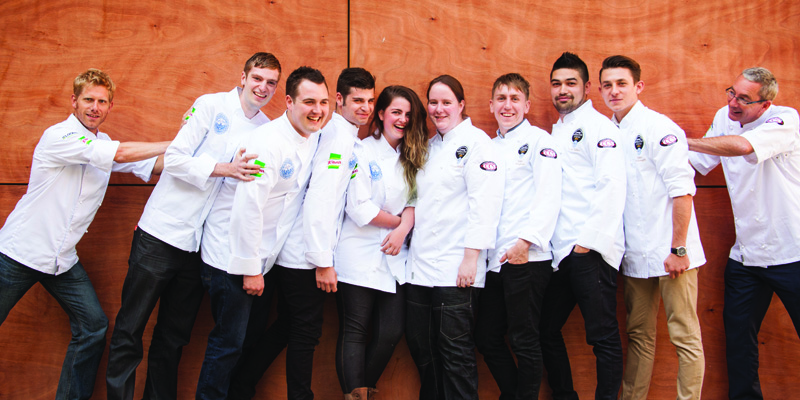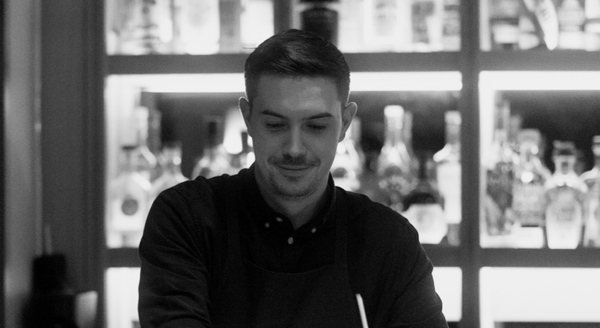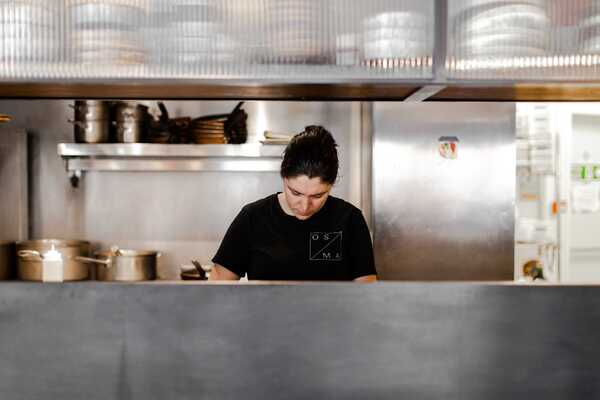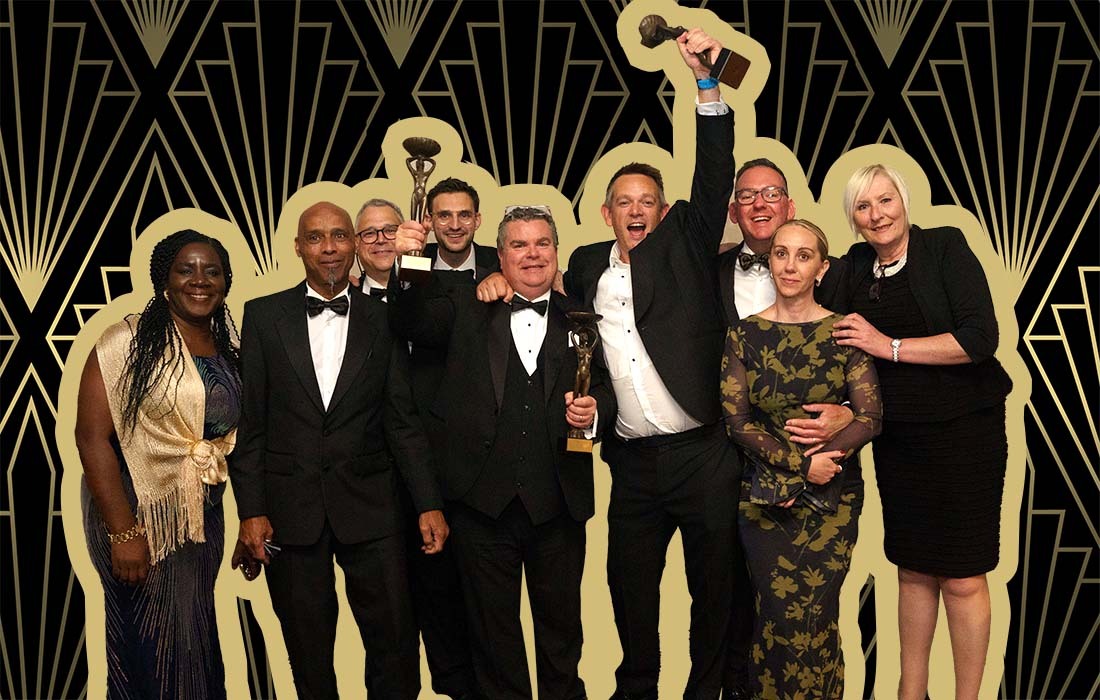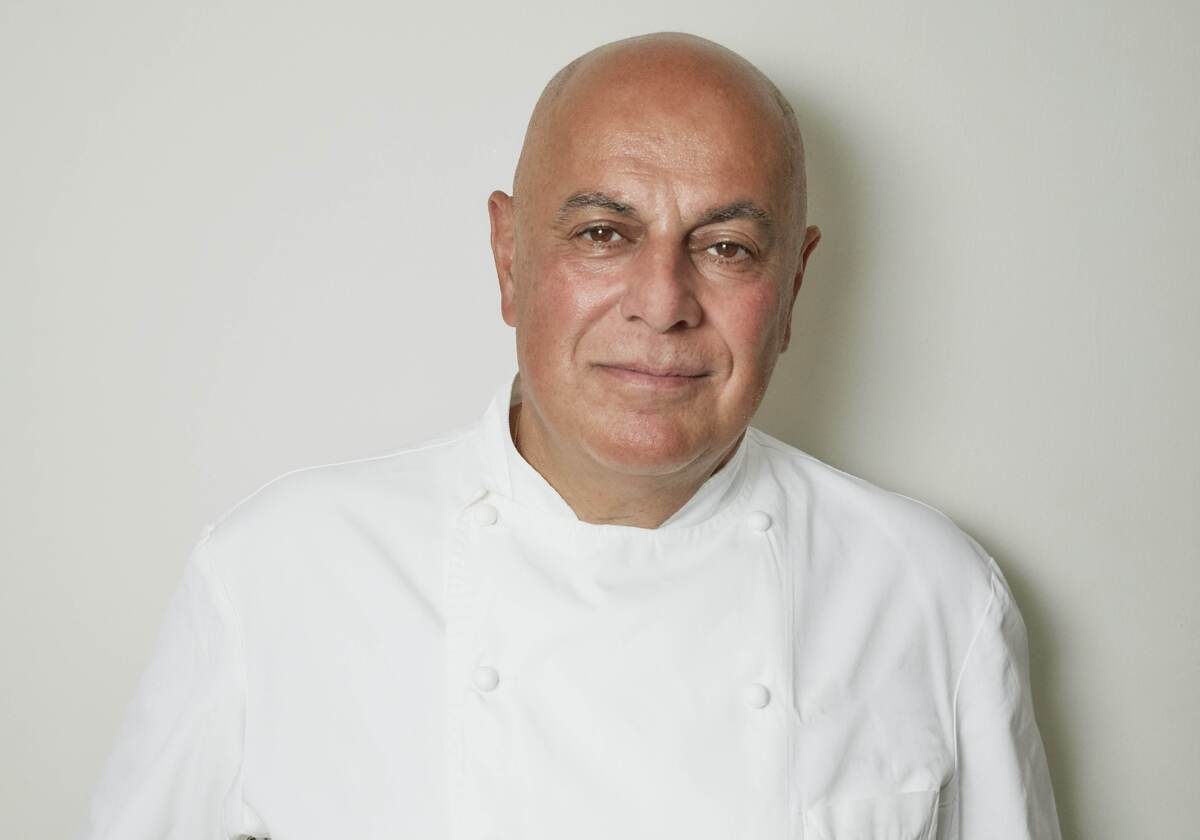A tilt at the talent title: Young National Chef of the Year 2014
As eight young finalists prepare to compete for the title of Craft Guild of Chefs Young National Chef of the Year 2014, Hannah Thompson went along to the contest's mentor day to see how the chefs were gearing up for one of their biggest career challenges to date
Held in the Knorr kitchen at the offices of lead sponsor Unilever Foodsolutions, the now annual mentor day is run by the Craft Guild of Chefs, the competitionâs organiser, as a way to support the finalists and answer frequently asked questions.
This yearâs session included a cookery demonstration by Hayden Groves, current National Chef of the Year (in place of chef ambassador Mark Sargeant), and Tim Franklin-Heys, culinary team manager of Unilever Foodsolutions. There was also a question and answer session led by Craft Guild of Chefs vice president and Sodexo culinary director, David Mulcahy.
Discussing menus, hopes, inspiration and top tips on competition technique, the finalists had the chance to ask questions and mentally prepare for one of the biggest cookery competitions of their lives so far.
It all kicks off
The mentor day starts off with a few words of wisdom from Mulcahy, who advises the finalists to imagine themselves as cooking in a restaurant where the judges are the customers. âItâs not just about knowing the dish,â he says. âIt also about how you perform in that environment on the day.â
He also offers some comfort: âYouâre here on merit. Just being a finalist means youâve done an amazing job already.â
He urges the finalists to ask any questions, and reassures them that âthere are no stupid questions at this stageâ.
The demonstration then begins, with Groves preparing poached guinea fowl and vegetables, and offering tips on competition technique, such as working in a small space, and keeping your station clean.
âSomeone here will win,â he says, âbut all you can do is be yourself. The first five minutes will be uncomfortable, so be prepared. If something goes wrong, donât let it throw you.â
Then thereâs a question and answer session on the actual competition, chaired by Mulcahy. The finalists are reminded about the practical details, like bringing along their entry pass. They are also advised about the equipment that will be available on the day, such as pans and oven types.
âTry to keep your recipes to 10 simple points, and be adaptable in case something goes wrong or changes on the day,â adds Mulcahy. He also recommends that they make dishes that show off as many of their skills as possible in the time, and says the judges will be looking at hygiene and organisation, as well as taste.
The last mentor session sees the finalists sit down to talk about their style of cooking and hopes for the contest. They address the challenges of planning their menus.
âItâs really easy to overcomplicate the menu,â says April Lily Partridge, chef de partie at the Club at the Ivy. âBut I think what theyâre looking for is â" can you cook maybe just three or four ingredients really well?â
Tom Kerridge and Ollie Dabbous are the names that crop up when the finalists are talking about the top chefs they look up to. And they reckon that simple British cooking is todayâs prevailing trend, along with Nordic influences from chefs such as René Redzepi. They think having a mentor is key, with Spencer Metzger, chef de partie at the Ritz, naming John Williams, executive chef at the Ritz, as someone he can turn to in his kitchen with questions or problems.
Who are the finalists?
Automatically qualifying for the final are the winners of four young chef competitions â" those run by the British Culinary Federation, the Academy of Culinary Arts (its Annual Awards of Excellence), the Craft Guild of Chefs (the highest achiever at its Graduate Awards), and WorldSkills. The other four finalists are drawn from the Craft Guild of Chefs Graduate Awards, Chaîne des Rôtisseurs Young Chef and key regional Young Chef of Year contests.
Josh Bingham
Junior chef de partie, Belmond Le Manoir aux QuatâSaisons, Oxfordshire
Josh Bingham started working in his parentsâ restaurants aged 14. At 16, he went to work at the Bath Priory under Chris Horridge for 18 months, moving with Horridge to work at Cliveden in Taplow, Berkshire. A year later, he completed a successful trial at Le Manoir and became commis chef in April 2010. He has since progressed up the ranks, and has entered competitions like the Craft Guild of Chefs Graduate Awards 2013, for which he scored 90%, that yearâs highest mark.
He says: âPassion drives you through every day. That is the main reason why we become chefs. I found that food was the greatest expression of a person.â
James Goodyear
Sous chef, Belmond Le Manoir aux QuatâSaisons, Oxfordshire James Goodyear attended North Warwickshire and Hinckley College from the age of 16, and spent his days off working in local restaurants and a butcherâs. On finishing college, he became commis chef at Le Manoir. He has since progressed to sous chef and worked in every section of the kitchen.
His other competition successes include winning the highest achiever award at the 2012 Craft Guild of Chefs Graduate Awards, and the 2013 William Heptinstall Award, which saw him spend three months in New York at restaurants including Per Se, Eleven Madison Park and Daniel.
âI want to travel around Europe, take ideas from other cultures and bring them up to date,â he says.
Daniel Lee
Chef de partie, Brooklands hotel, Weybridge Daniel Lee initially worked in a butcherâs at the age of 15, and also helped at outside catering events and parties. After finishing his A-levels, he took a three-year, full-time catering course at Westminster Kingsway College, which cemented his passion for catering. He went on to work as a commis chef at Woodlands Park hotel in Cobham, and competed in the BCF Young Chef of the Year contest. A year later, he started as demi chef de partie at the Brooklands hotel under the guidance of head chef Nick Sinclair, and within several months was promoted to chef de partie, with his own section.
âIt would be an honour to win,â says Lee. âIt would help move your career on, and prove that you are really on the right path.â
Spencer Metzger
Chef de partie, the Ritz, London Spencer Metzgerâs first taste of the Ritz came during two weeksâ work experience in summer 2009. He then applied to the Royal Academy of Culinary Arts apprenticeship programme, winning a place at Bournemouth College and graduating with distinction with the highest mark in his year group.
He joined the Ritz team in January 2010, having initially returned as an apprentice. He has since been promoted to his current role, and in June 2014 notched the highest score in the Royal Academy of Culinary Arts Annual Awards of Excellence.
He says: âItâs really important to have a mentor, especially when youâre young. In terms of recipes, I like using British produce and marrying it with foreign produce such as foie gras or truffles.â
April Lily Partridge
Chef de partie, the Club at the Ivy, London
April Lily Partridgeâs love of cooking began at age 15 after two weeksâ work experience at the Reform Club in Pall Mall. Soon after, she entered a young chef competition, where she met the Ivyâs executive head chef Gary Lee and won work experience at the restaurant.
She was then offered a scholarship to Westminster Kingsway College via Caprice Holdings, and after graduating worked at 34 in Mayfair, before moving to the Club at the Ivy. In 2012, she won the Hotelympia Hot Talent Award, and in 2013 was named Young Chef at the Craft Guild of Chef Awards.
âItâs very humbling to be chosen; it opens a lot of doors,â she says. âI like to create food that makes you nostalgic for a memory; quirky food that makes you smile.â
Julien Pickersgill
Demi chef de partie, House of Commons, London
Inspired by Gary Rhodes and Jamie Oliver, half-French Julien Pickersgill also enjoyed home cooking from his aunt, and joined the Junior Chef Academy at the University of West London after leaving school. During his three-year chef diploma course, he did work placements at Blenheim Palace, Royal Lancaster, the Carlton Tower hotel, the One-O-One restaurant, Claridgeâs and the House of Commons, where he was offered a permanent job.
In November 2013, he won the British Culinary Foundation Young Chef of the Year, and was promoted to demi chef de partie earlier this year.
He says: âFor me, my style is more focused on the classics. But Iâm also a huge fan of Asian food. Everyoneâs talking about the fifth taste; itâs coming back.â
Luke Selby
Junior sous chef, Belmond Le Manoir aux QuatâSaisons, Oxfordshire Luke Selbyâs career began as a Sunday breakfast chef in his local hotel. A few years later, aged 17, he had a weekâs work experience at Belmond Le Manoir aux QuatâSaisons in Great Milton and was âblown away by the placeâ.
A year later he started as a commis chef and in the past five years has run every section of the kitchen. He won the Academy of Culinary Arts Annual Awards of Excellence in 2012 and the annual Craft Guild of Chefs Graduate Award in 2013.
âIâm still working on developing my style,â he says. âIâd love to travel around Spain, and also to Sweden. I love clean, simple, Nordic-style cooking.â
Claire Willett
Chef de partie, Wyboston Lakes, Bedfordshire Claire Willett became involved in culinary competitions during her time at college. To date, she has more than 50 medals, a bronze from the Culinary Olympics in Germany, various best in class plates, and the Craft Guild of Chefs Graduate Award.
On leaving college, she secured a job at Wyboston Lakes in Bedfordshire as a commis chef, and has worked her way up over three years. She has also attended a level 1 foundation chocolate workshop at Barry Callebaut, and last September enrolled on the professional pâtisserie scholarship at Westminster Kingsway College.
âThe big nature of the competition doesnât play on my mind too much,â says Willett. âItâs just about making the best of what you know, and making a plate look and taste attractive.â
**How it works
**Having submitted their own menus by 19 September, the finalists will be judged in the competition on how the meal âflowsâ, as well as each plateâs individual taste and presentation.
The winner, who will be announced at the end of the Restaurant Show, can look forward to a host of prizes, including the chance to take part in international stages, and an exclusive after-party at London club Quo Vadis in the evening.
Competition essentials
When 7 October 2014
Where The Restaurant Show, Earls Court, London
What Two hours to prepare a three-course menu comprising a âfreestyleâ starter, a main course containing Alaskan black cod, and a dessert featuring a chocolate fondant.
**How to win
**Hayden Groves, National Chef of the Year 2013 and executive chef at BaxterStorey, gives his advice for the junior hopefuls.
- Donât think of it as competing against each other; itâs about competing against yourself.
- Be risk-averse. Even though your recipe should be tasty, donât put yourself at the mercy of an unfamiliar oven.
- Remember that getting to this stage of the competition is already winning; youâre already extremely committed. I have tremendous respect for chefs who achieve this outside their day jobs.
- Be prepared for those first five minutes when your mind goes blank. After that, youâll get into your groove and be in the right mindset.
- Practise hard, race easy. On the day, you can only do what youâve practised.
- Be philosophical. Donât add extra pressure on the day by over-analysing and thinking about what it âmeansâ.
- You will always have nerves and doubts, but thatâs what keeps you sharp.
- Itâs very important to have a mentor. Make sure you can ask their advice and they can support you.
- Remember that win, lose or draw, if you did your best, you canât ask for more. Food is subjective; all you can do is be happy with what youâve done.
Where are they now?
2013 winner: Ben Champkin Won the Young Chef of the Year competition as commis chef of the Michelin-starred Elephant restaurant in Torquay. Now junior sous chef at two-Michelin-starred LâEnclume in Cumbria.
2012 winner: Ben Murphy Won while chef de partie at Koffmannâs at the Berkeley, London. Now works at the three-Michelin-starred Epicure in Paris.
2011 winner: Charles Smith Won as junior sous chef at the then Marcus Wareing at the Berkeley, London. Now senior sous chef at Alyn Williams at the Westbury, also in London.



